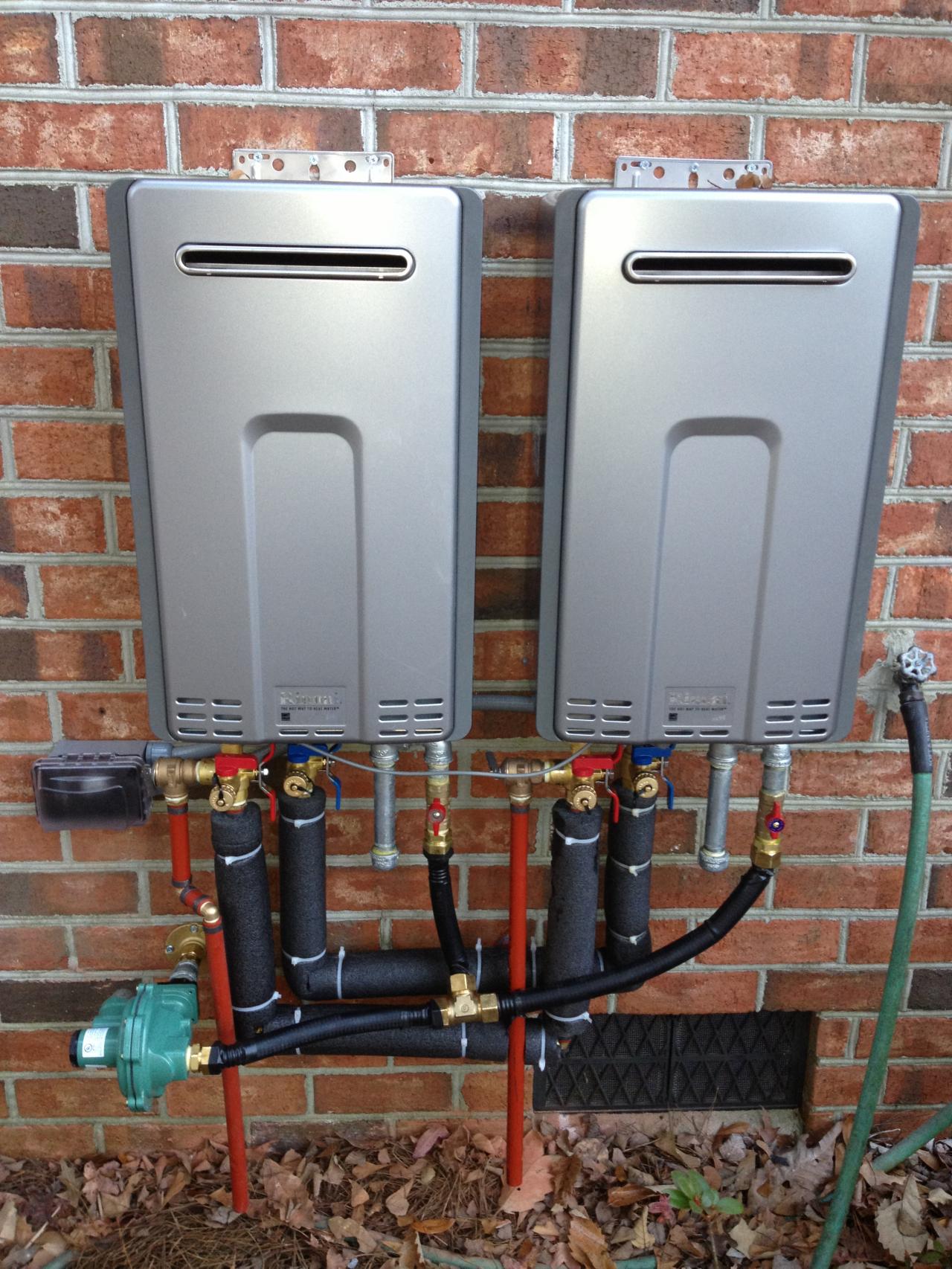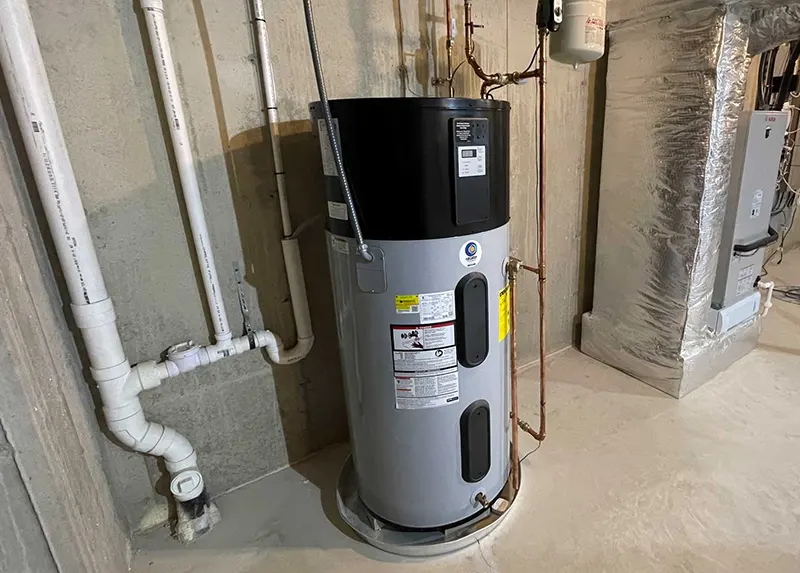Certified Gas Leak Repair for Your Peace of Mind and Assurance
Certified Gas Leak Repair for Your Peace of Mind and Assurance
Blog Article
Full Guide to Water Heating UnitInstallment and Substitute
Comprehending the details of hot water heater setup and substitute is important for homeowners seeking to make sure performance and dependability in their warm water supply. From picking the appropriate type and dimension to executing a seamless installment process, several aspects have to be considered to prevent usual pitfalls. This guide will provide you with the essential actions and understandings to browse the intricacies of this home improvement task, while also emphasizing important upkeep techniques that can lengthen the life of your system. As you check out these aspects, you might locate on your own reassessing your existing arrangement and identifying areas for enhancement.
Kinds Of Hot Water Heater
When considering water heater installment and substitute, it is important to comprehend the various sorts of water heating systems offered out there. The most usual types include container hot water heater, tankless hot water heater, heat pump water heating systems, and solar hot water heater.
Storage tank water heating systems are typical systems that store a particular quantity of hot water, making them readily available when required. In contrast, tankless water heating units offer hot water on need, eliminating the need for storage.
Heat pump hot water heater make use of electricity to transfer warm from the air or ground to warmth water, offering substantial power cost savings however requiring more space and particular installation conditions. Solar water heating units harness solar power to warm water, offering an eco-friendly option with potential long-term expense financial savings, although they often require a backup system for cloudy days.
Comprehending these options guarantees notified choices regarding installment and replacement, accommodating specific needs and preferences.
Choosing the Right Dimension
Selecting the suitable dimension for a hot water heater is crucial to guarantee ideal efficiency and efficiency. An unit that is as well small will certainly have a hard time to meet home needs, resulting in inconsistent warm water schedule and boosted power consumption. Conversely, an extra-large hot water heater can result in unneeded power waste and greater energy costs.
To figure out the appropriate dimension, think about the household's optimal warm water usage. This can be determined based on the variety of passengers and their normal warm water demands. For instance, a family members of four may require a water heater with a capacity of 50 to 80 gallons, depending on the use patterns, such as synchronised showers and washing.
Furthermore, assess the recovery rate, which gauges just how quickly a heater can renew warm water after it has been utilized. For tankless models, focus on the flow price, determined in gallons per min (GPM), to guarantee it meets the home's synchronised demand.

Installment Refine Introduction

Next, the old system has to be detached and removed, making sure to comply with local codes and guidelines regarding disposal. When the old unit is out, the new water heating system can be placed in location. This action includes connecting the water supply lines, guaranteeing that all fittings are leak-free and safe.
After developing water links, it's vital to link the power supply, whether electric or gas, adhering to the supplier's instructions diligently. As soon as all links are made, the system needs to be full of water, and the power can be transformed back on. Ultimately, it is very important to these details examine for leakages and make certain the water heating system is functioning properly prior to completing the setup procedure.
Common Installment Mistakes

One more regular blunder is overlooking to comply with neighborhood codes and policies. Falling short to stick to these criteria can not only lead to security risks yet may likewise result in costly fines or the need for expensive reinstallation.
Falling short to secure links or making use of the wrong type of fittings can lead to leaks and water damage. By avoiding these usual installment errors, homeowners can guarantee their water heating unit operates safely and effectively, making the most of efficiency and durability.
Upkeep Tips for Durability
Proper maintenance of a hot water heater is crucial for its longevity and ideal performance. Routine examinations and maintenance can stop expensive repair work and extend the appliance's life-span. Begin by checking the temperature level setup; it needs to normally be set between 120 ° F and 140 ° F for optimum energy effectiveness and safety and security.
Every six months, purge the storage tank to remove sediment build-up, which can hinder home heating efficiency and trigger corrosion. To do this, transform off the heater, attach a tube to the drain shutoff, and allow the water run up until it is clear.
Anode rods should be evaluated each year and changed when they are worn away. These poles assist stop storage tank rust by drawing in corrosive aspects in the water.
Furthermore, examine the stress safety valve on a regular basis to guarantee it is operating correctly. This shutoff is important for avoiding extreme stress accumulation within the storage tank.
Lastly, consider arranging a specialist upkeep check every few years for comprehensive assessments and servicing. By sticking to these upkeep suggestions, property owners can dramatically boost the efficiency, safety and security, and lifespan of their water heating systems, making certain dependable warm water for years to come.
Conclusion
In verdict, correct setup and maintenance of water heating systems are crucial for guaranteeing effectiveness and durability. By understanding these necessary aspects, home owners can accomplish a reputable hot water supply while lessening prospective problems connected to water heating unit procedure.
Recognizing the details of water heater installation and replacement is crucial for homeowners looking for to make sure performance and reliability in their hot water supply.Storage tank water heating units are conventional systems that Continue keep a particular quantity of warm water, making them readily available when needed. In contrast, tankless water heating units provide warm water on demand, removing the requirement for storage space. Picking a water heater that is either also small or the original source also large can lead to inadequacies, resulting in inadequate hot water supply or extreme power intake.
By comprehending these necessary elements, house owners can attain a trustworthy warm water supply while reducing prospective problems connected to water heater procedure. gas leak repair.
Report this page